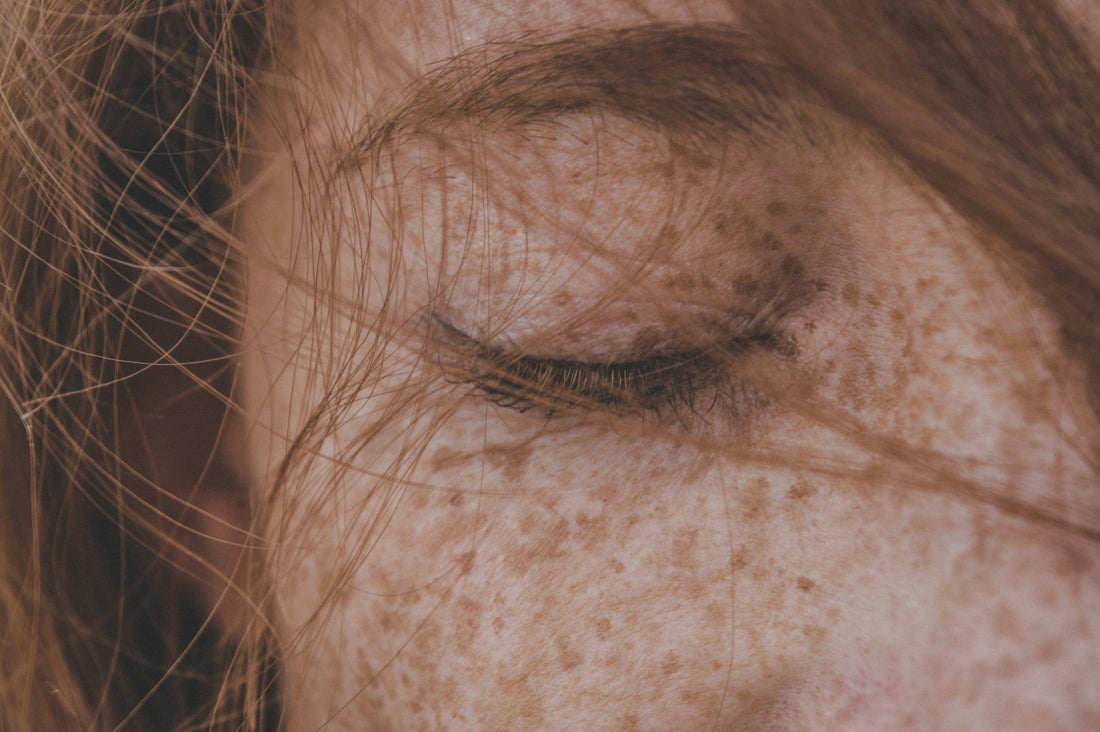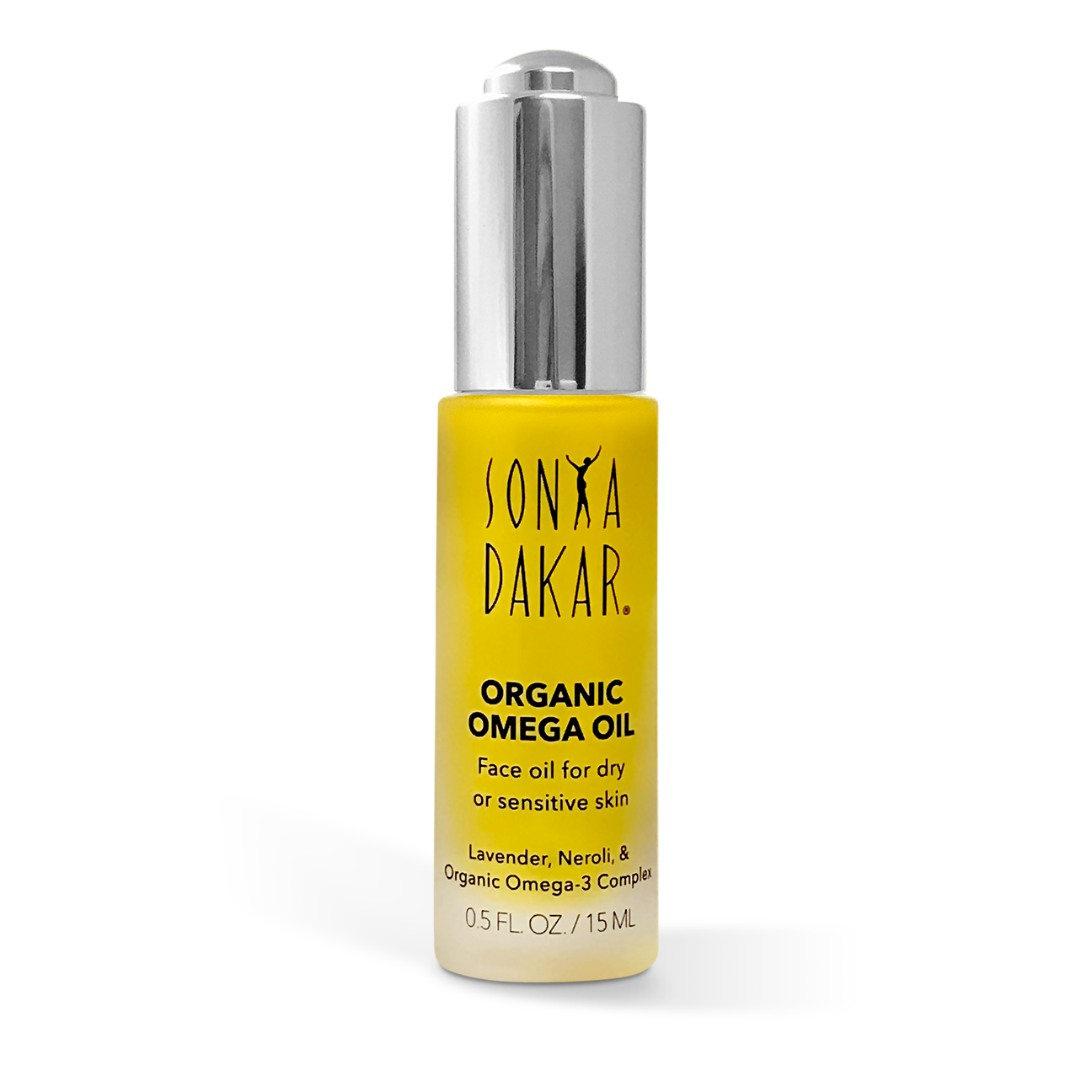
Sensitive Skin Care: How to Identify, Treat, and Prevent Flare-Ups
Did you know nearly 60% of adults say they have sensitive skin? The reality is that sensitive skin isn’t just about feeling a little itchy after a new cream. It’s a skin type marked by a higher-than-average reactivity—meaning even minor shifts in environment, stress, or skincare products can trigger redness, irritation, or discomfort.
In this guide, we’ll break down how to identify sensitive skin, what makes it flare up, and the best daily routine to calm and protect it. You’ll also discover the most effective ingredients for sensitive skin—and learn about targeted solutions like Sensi Wash and Barrier Bliss that strengthen and soothe your skin barrier.
What Is Sensitive Skin?
Sensitive skin is not a diagnosis but a reactive condition where your skin over-responds to everyday stressors. While all skin is sensitive to some degree, truly sensitive skin shows frequent symptoms such as:
- Redness or flushing
- Burning or stinging sensations
- Dryness or tightness after cleansing
- Itching or rash-like reactions
- Visible flare-ups after certain products or weather changes
Unlike temporary irritation, sensitive skin tends to be a consistent pattern that recurs unless carefully managed.
Causes & Triggers of Sensitive Skin Flare-Ups
Sensitive skin flare-ups often come from multiple sources:
- Skincare ingredients: Harsh sulfates, alcohol, synthetic fragrance, or strong exfoliants can break down the skin barrier.
- Environmental factors: Cold, wind, heat, humidity, and pollution can all aggravate reactivity.
- Lifestyle stressors: Stress, lack of sleep, or poor diet can elevate inflammation and weaken your skin’s defenses.
- Over-treating: Using too many active products (retinol, AHA, salicylic acid) without balance can strip the barrier.
Understanding your triggers is the first step toward prevention.
How to Identify Sensitive Skin vs. Temporary Irritation
It’s easy to confuse an allergic reaction or irritation with having sensitive skin. Here’s how to distinguish:
Sensitive skin: Ongoing reactivity to multiple triggers; feels tight or dry often, even without new products.
Temporary irritation: A short-term reaction to one product (like a peel or a too-strong cleanser) that resolves after discontinuing.
If flare-ups are chronic and affect daily comfort, you likely have sensitive skin rather than an isolated reaction.
Best Ingredients for Sensitive Skin
When your skin is prone to flare-ups, ingredients matter more than anything. Look for:
Gentle surfactants: Mild cleansing agents that don’t strip oils (ideal for daily cleansing).
- Omega fatty acids: Support barrier repair and reduce water loss.
- Antioxidants: Neutralize free radicals and calm inflammation.
- Soothing botanicals: Chamomile, calendula, and blue butterfly pea calm redness.
- Barrier-strengthening molecules: Chlorophyll, polyphenols, and ceramide-like lipids reinforce the skin’s defenses.
Ingredients to Avoid with Sensitive Skin
Certain ingredients are best avoided if you struggle with reactivity:
Sulfates (like sodium lauryl sulfate) → strip natural oils
- Alcohol (in toners or astringents) → drying and irritating
- Synthetic fragrance → one of the most common causes of flare-ups
- Harsh scrubs or aggressive exfoliants → create micro-tears and worsen sensitivity
Daily Routine for Sensitive Skin
A simple, consistent routine helps prevent flare-ups.
Morning:
- Gentle cleanser
- Alcohol-free toner
- Lightweight moisturizer or barrier cream
- Sunscreen
Evening:
- Gentle cleanser
- Calming face mask (2–3 times a week)
- Barrier-strengthening moisturizer or balm
- Nourishing face oil
Consistency is more important than chasing every trend—your skin thrives when it knows what to expect.
Sonya Dakar Sensitive Skin Solutions
Sensi Wash
Hero Ingredient: Coco-glucoside
This plant-derived surfactant is one of the gentlest cleansers available. Unlike sulfates, coco-glucoside removes impurities without stripping natural oils, making it ideal for sensitive skin that reacts to traditional foaming cleansers.
Blue Magic Face Mask
Hero Ingredient: Azulene
Extracted from chamomile, azulene is a powerful anti-inflammatory compound. It reduces redness and soothes irritation, making this mask a go-to for calming flare-ups and restoring comfort to inflamed skin.
Blue Butterfly Calming Toner
Hero Ingredient: Blue Butterfly Pea Extract
Rich in antioxidants, this botanical calms redness and supports microcirculation. It helps reduce visible irritation while protecting against environmental stressors that commonly trigger sensitive skin flare-ups.
Barrier Bliss
Hero Ingredient: Green Tea Polyphenols
Polyphenols are potent antioxidants that reduce inflammation and strengthen the skin’s barrier. They help sensitive skin defend itself against pollution and free radicals, while keeping it calm and hydrated.
Blue Butterfly Balm
Hero Ingredient: Shea Butter
Shea butter provides deep nourishment with essential fatty acids. For sensitive skin, it acts as a protective shield, preventing water loss and reducing dry, flaky patches without clogging pores.
Organic Omega Face Oil
Hero Ingredient: Omega-3 Fatty Acids
Omega-3s replenish the lipid layer of sensitive skin, repairing barrier function and reducing inflammation. This makes the oil both calming and strengthening—restoring resilience over time.
Preventing Sensitive Skin Flare-Ups Long-Term
Beyond daily skincare, long-term prevention requires lifestyle support:
- Patch test new products before applying to your whole face.
- Stay hydrated to help skin maintain elasticity.
- Prioritize sleep and stress management to keep inflammation low.
- Protect from sun and pollution—both accelerate barrier breakdown.
- Simplify your routine rather than layering too many actives.
Conclusion
Sensitive skin doesn’t have to feel limiting. By understanding your triggers, choosing barrier-supportive ingredients, and using products designed for calmness and protection, you can prevent flare-ups and restore comfort.
Sonya Dakar’s sensitive skin essentials—from the sulfate-free Sensi Wash to the omega-rich Organic Omega Face Oil—offer gentle yet effective solutions rooted in science and nature. With the right care, sensitive skin can look and feel healthy, balanced, and resilient every day.










